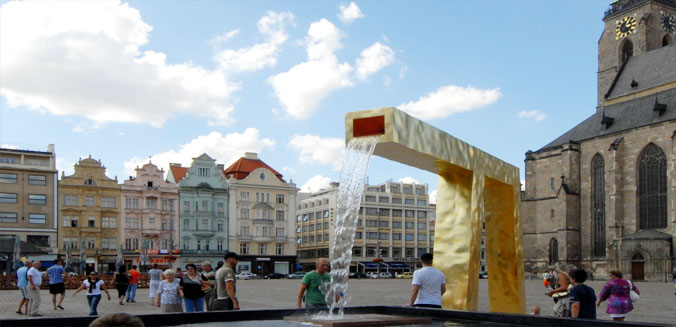For the past six years Europe has been gripped by an obsession with its economy, its social issues and inequality, immigration and its youth unemployment. Although these are very valid concerns, as it is obvious that there are huge shortcomings in most EU member states, we have to remind ourselves that Europe is not only about the economy. A common currency or a single market are never enough to unite the people and make them feel that they are part of a political union. One thing that always creates a sense of belonging among the populace is shared culture. In other words, if Europe desires truly to be united in some sort of a confederation or federation, it must start promoting its culture through constant cultural exchanges, education and history, events and festivals.
The basis is already there. Every year one or two European cities have the honour of being the Cultural Capital of the continent. But we as citizens never have the opportunity of watching on our national television or other media any events or news from the Cultural Capital, unless we live in that city itself. So what is this all about; just another way for the local municipal authorities to receive funds from the EU budget? The European Capital of Culture’s purpose is supposedly broader than just providing extra money to some city councils.
One of the original thoughts behind the Cultural Capital initiative was to promote the rich European history and culture, apart from generating funds for the regeneration of a given city. If there was more public exposure of each city, its culture, lifestyle and history, then for starters the tourism industry would blossom. People would watch, read, or experience all the best that a city has to offer, would become more curious about it and book a holiday there in the foreseeable future. That alone would benefit more that region’s economy than just receiving funds from the EU institutions. By watching events from Europe’s Cultural Capital, we would additionally get to know that city and come in contact with other European cultures, ways of living, arts and history.
This could generate, as a result, an intercultural dialogue and exchange, which is necessary in creating a European demos. It would enhance a sense of belonging to all EU citizens and could also lead to a booming of the arts and crafts in every region of Europe; by investing money in each city not only for reconstruction but also to support local artists and cultural communities.
Europe has been the cradle of major art movements on our planet over the centuries. European art, architecture, music and theatre spread around the world along with trade and colonization. How come that nowadays Europe is ignoring this major strength, while it tries to (re)claim its place as a powerhouse of the modern world? Hollywood and pop culture are as much parts of US hegemonic attributes as are the economy, politics and the military.
EU leaders expect to win the soul of Europe by appealing to investors, multinational corporations, economists, bankers and politicians, and they are surprised when ordinary citizens do not follow. True, people are concerned about unemployment and declining living standards. They want solutions to these problems. Moreover, if they have to compromise their country’s sovereignty, they need to know that there are certain benefits attached to it. But this is not all. Citizens also need to be inspired by an ideal, a political project or a vision of a better future. The creation of the EU promised them financial stability and prosperity, and for some years it delivered. Yet, if citizen support is solely linked to the state of the economy it will inevitably have ups and downs, just as in a capitalist system the economy goes in circles. We cannot build a long-lasting, successful union or political integration of our continent relying only on the block’s economic success. If Europe is just a big market, a bazaar that companies and multinationals can trade at, then the citizens have no say on, interest in or a real understanding of what is happening.
When things turn bad for the economy, experience shows that it is the citizens who are called to pay for the risks that the bankers or the markets took, and the EU becomes the scapegoat. Our governments prefer to place all blame on EU regulations, yet rarely on their mistakes. The result is a growing euro-scepticism and the rise of radical political parties across the EU. The average citizen feels detached, alienated from the block’s institutions, but also from the rest of Europe. And that can be dangerous in a period of serious economic downturn, if there is no other connecting element. That unfortunately is still the case, as citizens haven’t learned to think European. Nationalism, protectionism and conservatism become mainstream and the interests of the political, industrial or financial elites of each country are again being served as a priority, not those of the citizens.
Apart from maintaining its single market, Europe must promote among others its cultural and historic wealth through the media, its educational system and through appropriate festivals and gatherings. The European identity, what unites us, needs to be stressed and take precedence over what divides us. This will serve everybody well in times of crisis, keeping the unity of the continent and benefiting from the accumulated strength of all EU nations. It will also help strengthen the sense of solidarity and promote equality in opportunities and living standards across the EU. Such a collective conscience can never be created by focusing solely on markets and finance. In a world of fluctuating markets, a shared culture and collective conscience are much more stable values than company shares and stocks.



